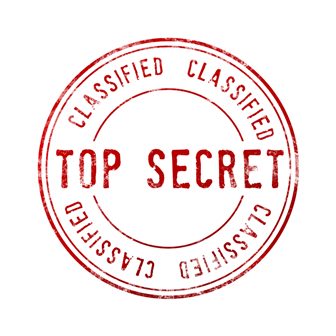
Master Sang once joked about how any Feng Shui book or class titled with the word “Secrets” is probably a marketing gimmick and the information would actually be very basic, and not a secret at all, by definition. I don’t know if this is true or not, but I do know that some feng shui consultants will try to make their courses and written materials sound very exclusive, advanced and only available to a select few. A dead giveaway is when the technique to be taught is written only in Chinese, but promoted to English speaking students. (I.E. Learn the secrets of the Fu Mu San Gua House!) To be clear, I am not being critical of teaching techniques to westerners using Chinese words, but without any accompanying description in English, the class would truly sound very mysterious.)
What I have learned over the years is that some Feng Shui courses are filled with topics that are considered “red herrings” and not really all that helpful in real world situations. And yet, historically, Feng Shui was not an open topic to the public, like the way I have taught thousands through community colleges, adult schools and other open mediums. In times past, one had to study with a master for years and first prove them self worthy to do so.
Did ancient Feng Shui masters really know how to manipulate the weather? If so, then they were a couple thousand years ahead of the Military Industrial Complex!
There are some genuine “Feng Shui Secrets” which are not known to the general public, such as the fact that the magnetic compass was invented by Feng Shui masters, for feng shui purposes, before the compass was used for more mundane uses and for maritime navigation. It is also probable that Chinese explorers and their feng shui masters discovered North America a long time before Christopher Columbus found his way there.
One unintended secret for the general public is that high level feng shui requires knowledge of when a structure was built. Even with so much exposure to Feng Shui as a concept, this important criteria still eludes many people seeking out information and instruction via popular books and the Internet.
One of the things I have attempted to do in my on-line Case Study Club and my school’s Advanced Feng Shui module, is to provide material which is not so much a “secret” as it is just advanced, nuanced information which is mostly only interesting to serious students and fellow practitioners.
Some of those “secrets” are theories and applications which the average Feng Shui consumer is still not aware of, such as:
The location of a cash register in a store can influence the success of the business as much as the location of the entrance.
The Four Major House types change their identity over time.
There are Exceptions to the Rule for many common, well-known principles, such as the house at the end of a cul-de-sac sometimes being the luckiest house on the street.
Mental Illness can be correlated with specific environments.
As much as we may worry about bad timing for a construction, there are also lucky times to proceed with one, which could result in a financial windfall.
There are feng shui techniques for getting rid of a ghost.
There is a whole branch of Feng Shui called Yin House which relates to grave sites and cemeteries, which can then influence the descendants’ health and prosperity.
Feng Shui can predict and often resolve or lessen legal issues.
Each of the eight directional areas of a house is related to a family member and parts of the body. (This is in contrast to the New Age version of Feng Shui, which labels certain areas as “Wealth,” “Marriage” and “Fame,” etc.
And finally, Feng Shui practitioners do talk shop among themselves regarding observations and new theories, some of which become modern-day interpretations and special circumstances. This can include environments indicating occupants with problems that did not exist before or were not common decades or centuries ago.
Author: Kartar Diamond
Company: Feng Shui Solutions (R) Since 1992
From the Frequent Client Questions Series
